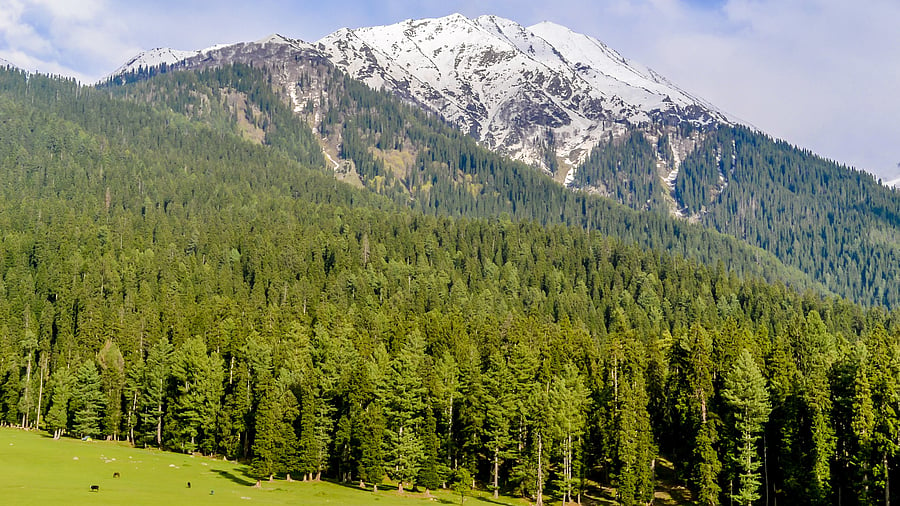
View of the Kashmir valley. Image for representation.
Credit: iStock Photo
Srinagar: Despite being a legal requirement under the Forest Conservation Act of 1980, the creation of a land bank for suitable non-forest land in Jammu and Kashmir for compensatory afforestation has yet to be completed.
This has led to the non-implementation of directives issued by the Union Territory government over six months ago, further delaying vital environmental mitigation efforts.
Under the Forest Conservation Act, 1980, any diversion of forest land for non-forest purposes must be compensated through afforestation efforts on equivalent non-forest land. The Union Ministry of Forest and Environment (MoEF) had long ago directed States and Union Territories to create land banks of non-forest land so that same can be used to compensate for the loss of forest land.
In May this year, the J&K government formed a committee with the Principal Chief Conservator of Forests as its chairman, to identify the forest, non-forest lands, and wastelands -- not under the management or administrative control of the J&K Forest department -- for inclusion in the proposed land bank for compensatory afforestation.
However, the necessary identification and allocation of such land in Jammu and Kashmir have not been carried out, leaving a significant gap in compliance with the law. As a result, critical compensatory afforestation projects that are meant to offset the ecological damage caused by the diversion of forest land are being delayed, affecting both local biodiversity and environmental sustainability.
Environmental experts have raised concerns about the long-term impact of these delays, warning that failure to meet compensatory afforestation requirements could undermine efforts to mitigate deforestation in the region.
“We are facing a situation where regulatory frameworks are in place, but the implementation is lacking. Compensatory afforestation is not just a legal obligation; it is crucial for preserving Jammu and Kashmir’s rich biodiversity,” said an environmental expert.
He said the fast track developmental projects are one of the major reasons for the stress on ecology and also one of the major threats to it.
Jammu and Kashmir has a total forest cover of 20230 sq km (20.23 lakh hectares) accounting for 19.95 per cent of the total geographical area of 101387 sq km. Forests of Union Territory have been declared highly vulnerable to the effects of unpredictable weather patterns, early springs, and above-average temperatures, which experts have attributed to climate change and global warming.
Kashmir is located between two Himalayan ranges — the Karakoram on the Afghanistan side and the Hindukush on the Indian side - and both regions are experiencing the impact of climate change and global warming.